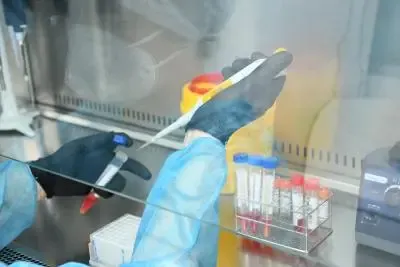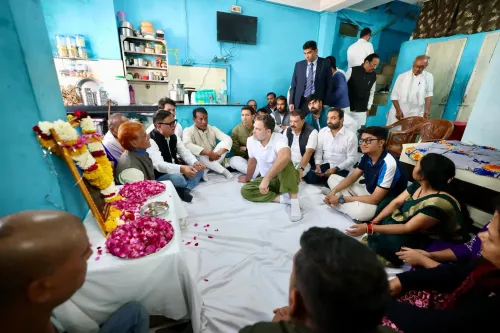How is India's MedTech Industry Key to Reducing Import Dependency and Increasing Global Market Share?

Synopsis
Key Takeaways
- Strategic Importance: The MedTech industry is crucial for reducing import dependency.
- Global Market Share: Current share is 2%, with a target of 10-12%.
- Government Support: Initiatives like the PLI scheme are in place.
- Investment Growth: Private and global investments are rising.
- Challenges: Regulatory issues and skill shortages need addressing.
New Delhi, Aug 29 (NationPress) The MedTech industry in India plays a vital role in decreasing import dependency while enhancing the sector's global market share, as reported on Friday. The Confederation of Indian Industry (CII), in partnership with Boston Consulting Group (BCG), emphasizes the significant opportunity for India's MedTech sector to become a global hub for manufacturing and innovation.
This pivotal report was unveiled during the opening session of the 17th CII Global MedTech Summit by Amit Agrawal, Secretary of the Department of Pharmaceuticals, Ministry of Chemicals & Fertilizers.
Currently valued at around $16 billion, India's MedTech industry constitutes merely about 2 percent of the roughly $680 billion global market.
According to the report, under the government's Viksit Bharat 2047 vision, the sector is highlighted as a crucial component of the 'Make in India' initiative, aiming to cut import dependency to below 50 percent and elevate India's share of the global market to 10-12 percent.
India has made notable progress in enhancing MedTech manufacturing capabilities, including the establishment of four MedTech parks, with the Andhra Pradesh MedTech Zone (AMTZ) being the most advanced. Financial incentives like the Production-Linked Incentive (PLI) scheme and state-level tax benefits have been instrumental.
Moreover, significant initiatives for skill enhancement through institutions like NIPER have fostered MedTech talent, leading to increased private investments from domestic and global MNCs. This progress has reduced import reliance from approximately 80 percent in FY2022 to nearly 60 percent in FY2024.
Despite these advances, the report points out critical challenges to achieving excellence in manufacturing, such as gaps in the ecosystem for high-end devices, regulatory complexity, lack of skilled personnel, under-utilization of MedTech parks, and limited MSME involvement in incentive programs.
To overcome these issues, the report proposes strategic measures to propel future growth, including optimizing the PLI scheme for MSME involvement, rationalizing import duties, and creating a raw material ecosystem. It also suggests attracting multinational manufacturing and R&D hubs to India and unlocking the potential of MedTech parks through collaborative innovation labs and shared foundries.
According to the report, collaboration among government, industry, and academia is essential for India to not only satisfy its growing domestic requirements but also to position itself as a reliable global hub for MedTech manufacturing and innovation.










